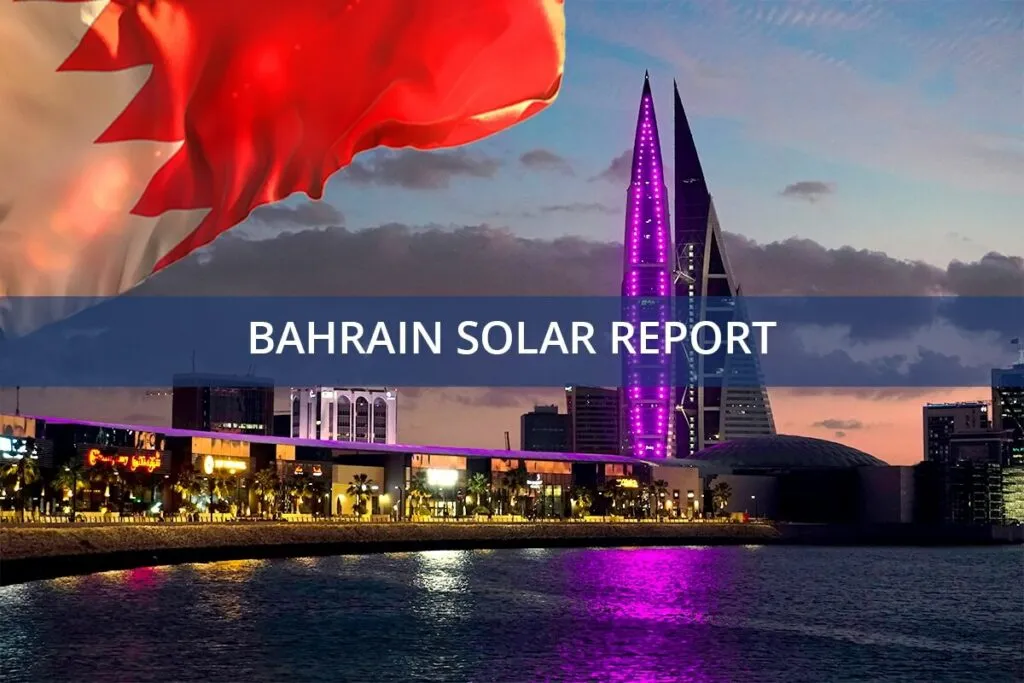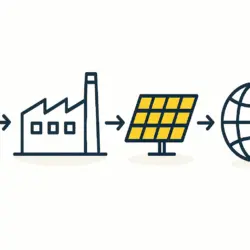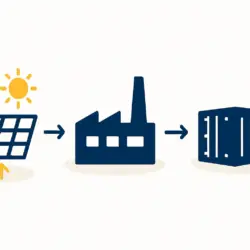The Kingdom of Bahrain is taking decisive steps to secure a sustainable future, targeting 20% of its energy from renewable sources by 2035 and pledging to achieve net-zero emissions by 2060. This ambition was recently underscored at the UN Climate Summit COP30, where Bahrain joined the Powering Past Coal Alliance (PPCA), committing to a coal-free energy future and accelerating the transition away from all fossil fuels. With a particular focus on solar power, the government is launching significant initiatives to harness its most abundant natural resource: the sun.
The country’s high levels of solar radiation, averaging an impressive 2,200 kWh/m² annually, make it an ideal location for solar energy production. This commitment is a cornerstone of Bahrain’s strategy to diversify its energy mix, reduce its reliance on hydrocarbons, and align with the global shift toward sustainable energy.
Bahrain clean energy Potential
Bahrain’s geographic location in the Arabian Gulf blesses it with intense and consistent sunlight throughout the year. The average solar insolation of 2,200 kWh/m² per year represents a vast, untapped resource. This significant solar potential provides a golden opportunity for the Kingdom to not only meet its domestic power needs cleanly but also to become a key contributor to global efforts in reducing carbon emissions. By converting this natural advantage into tangible energy, Bahrain is paving the way for a more resilient and environmentally responsible future.
Solar Panel Production and Installation for Bahrain clean energy
A key advantage for Bahrain is its role in the solar supply chain. The Kingdom is a leading producer of polycrystalline silicon, one of the essential raw materials for solar panels. This local production capacity provides a strategic edge, enabling Bahrain to support its domestic solar projects while also contributing to the global solar industry. Understanding the basics of manufacturing highlights how this capability is crucial for the nation’s green ambitions.
The government is actively translating this potential into reality through a series of ambitious projects. Beyond installing solar panels on public buildings, Bahrain is developing several large-scale solar plants. Noteworthy developments include the progress on the Bahrain advances 44 MW Sakhir Solar Project with key bids and plans for a groundbreaking Bahrain rooftop solar: stunning 2025 plant to be world’s largest. These initiatives, which involve a complex manufacturing process, are designed to significantly increase the share of renewables in Bahrain’s energy mix and shrink its carbon footprint.
Economic and Environmental Benefits of Bahrain clean energy
The widespread adoption of solar energy is set to deliver substantial economic and environmental benefits for Bahrain. By transitioning away from fossil fuels, the Kingdom can drastically cut its greenhouse gas emissions, which currently stand at approximately 30 million tons of CO2 per year. This shift will help Bahrain meet its international climate commitments, such as those made at COP30, and lead to improved air quality for its citizens.
On the economic front, the burgeoning solar sector is forecast to create over 10,000 jobs by 2035. This growth will aid in diversifying Bahrain’s economy away from its traditional dependence on oil exports. Furthermore, reducing fossil fuel consumption for power generation is expected to lower the nation’s energy import bill by more than $1 billion annually, bolstering its long-term fiscal stability.
Challenges and Future Prospects for Bahrain clean energy
Despite a clear and promising path, the expansion of solar energy in Bahrain is not without its challenges. The high initial investment required for solar panel installation and the need to develop a skilled workforce are significant hurdles. For those interested in the investment side, understanding the plant cost breakdown is essential. However, the government’s unwavering commitment, reinforced by its recent international pledges and the falling global costs of solar technology, provides a strong framework for overcoming these obstacles.
The future of solar energy in Bahrain looks exceptionally bright. The Kingdom is strategically positioning itself to become a leader in the Middle East’s renewable energy transition. By leveraging its abundant solar resources, domestic manufacturing capabilities, and forward-thinking policies, Bahrain is well on its way to achieving its renewable energy targets and making a meaningful contribution to the global fight against climate change.
To learn more about the intricacies of solar energy production, explore our free e-course.



